The Quality Assurance Academy presents the HOW TO webinars
In the time leading towards the second Quality Assurance Academy (QAA) edition later this year or even in 2021 and to keep the discussion on quality assurance going, we are delighted to be able to bring you the Quality Assurance Academy presents the HOW TO webinars.
These free webinars are designed as a series of moderated discussions building on expert knowledge, best practice cases and common topics viewed through the prism of quality assurance – strategy, accreditations, leadership, data analytics, effectiveness of learning and teaching in an evolving world, report writing skills and others.
The launch of the Quality Assurance Academy (QAA) – an EFMD GN programme held in partnership with RimaOne – in 2019 is in general reflecting on this very premise: How to manage quality in its multiple dimensions across a wide range of activities within a business school? While the main focus was to offer a comprehensive ‘quality assurance curriculum’ and highly experience-focused training to quality assurance specialists, the effort was made to enhance community building and peer learning. And this webinar series is one way of building that community of peers.
Re-watch any of the webinars below!
How to think accreditation strategy (recorded on 20 April 2020) Julie Perrin-Halot, GEM
Watch the recording
Embarking on the accreditation journey is a strategic decision for a school. The journey itself calls for a strategy to ensure the best possible experience and the highest quality outcomes. This is true whether for a first accreditation or a reaccreditation.
There are two levels to an accreditation strategy. The first is related to a school’s own strategic direction and goals. An accreditation must be integrated into this area of thinking and planning as it is a project with widespread impact and one that must be understood and carried in all parts of the institution. Driving the accreditation strategy at this level are fundamental questions such as:
- How does this align with the broader goals we have set for the institution?
- What will we look like on the other side of the accreditation?
- What are the short, medium and long-term learnings and benefits that we will reap from this?
The second level, far more operational, will define how to roll-out the process and how to extract the greatest added value at each stage. If the strategy simply focuses on the prize – the obtaining of a label, the vastly rich experience and learnings that come from a well-thought and well-choreographed process will be lost along the way. However, if the strategy pays careful attention to all dimensions of the journey, ranging from resourcing to buy-in to embedding continuous improvement sustainably in a school, its capacity to carry a school towards the best version of itself is unlimited.
About the speaker
 A member of the Grenoble Ecole de Management Executive Committee, Julie Perrin-Halot is the Associate Dean/Director of Quality, Strategy and International Development.
A member of the Grenoble Ecole de Management Executive Committee, Julie Perrin-Halot is the Associate Dean/Director of Quality, Strategy and International Development.
She has been active in the fields of strategy and quality management in higher education through a variety of project work helping institutions to put strategic management, quality assurance and academic processes into place. She is active as a mentor for AACSB, is a board member for EFMD’s EQUAL (European Quality Link), is a facilitator and mentor for the EFDM Quality Assurance Academy, and serves as a peer review team member for EPAS and AMBA.
She has published articles in areas such as internationalization, the future of business education, emerging models for business schools, the impact of accreditation, the social responsibility of business schools and managing collaborative provision.
How to engage your faculty (recorded on 22 April 2020) Adam Thomas, ZHAW
Watch the recording
In this session, Adam will be sharing ways to engage faculty; whether your school has the most complex systems set up already, or you’re rather at the beginning stages of accreditation. From full integration of the data systems you’re using and generating reports on the institution down to the level of the individual, or just simply getting things up and running within your context. Engaging and involving your faculty could be a deal breaker if not done well.
About the speaker
 Adam Thomas has an MA TESOL from Saint Michael’s College, VT, USA (2010) and an EMBA from the University of Applied Sciences Zurich (ZHAW), School of Management and Law, Switzerland (2019).
Adam Thomas has an MA TESOL from Saint Michael’s College, VT, USA (2010) and an EMBA from the University of Applied Sciences Zurich (ZHAW), School of Management and Law, Switzerland (2019).
Adam has been involved in accreditation since 2015 and has been involved in several accreditation events from AACSB as a participant, presenter and workshop facilitator. Additionally, Adam has attended several EFMD workshops and events.
In his job, Adam is responsible for AACSB accreditation at the ZHAW School of Management and Law, with a keen eye for best practices, novel learning methods, and systems integration. His role involves annual reporting, aspects of data management, and documentation of continuous improvement and impact at the school.
To contact Adam, please email: adamw.thomas@zhaw.ch
How to evaluate the effectiveness of learning and teaching (recorded on 27 April 2020) Björn Kjellander, Jönköping University
Watch the recording
This how-to webinar will revolve around student learning in the context of student needs, achievement, and progression and how to stimulate student engagement in learning processes and assessment. It will also discuss different quality assurance system tools and feedback mechanisms by which program and course possible improvements can be identified and implemented, good practice systematic monitoring of learning and teaching, and the usefulness of periodic course and program reviews. Good practice in faculty development and peer-review will also be discussed.
About the speaker
 Dr. Björn Kjellander has worked as Director of Quality Assuranceand Accreditation for Jönköping International Business School since2010. His work involves ensuring overall performance, quality andeffectiveness across all JIBS’ activities of education and research.Björn is also JIBS’ main liaison with the accreditation bodies withwhich JIBS interacts (AACSB and EFMD). During 2011-14, heled JIBS through the Swedish national assessment exercise forBusiness administration, Economics and Informatics, in which theschool received a distinction for its Bachelor degree in BusinessAdministration. Björn was also responsible for JIBS’ successful work to becomeAACSB and EQUIS-accredited in 2015, and the school’s 5-yearEQUIS accreditation in 2018. Currently, he works with nurturing the school’s networks (includingEFMD & AACSB), with several projects related to increasingthe quality of JIBS national and international activities, includingmentoring and board assignments. Björn is a member of JIBS’ faculty and has a PhD (University ofSussex, England) in American Studies, focusing on entrepreneurshiphistory and he is a member of the school’s research Centre forFamily Enterprise and Ownership. Björn also has a teaching degreefrom Gothenburg University, Sweden.
Dr. Björn Kjellander has worked as Director of Quality Assuranceand Accreditation for Jönköping International Business School since2010. His work involves ensuring overall performance, quality andeffectiveness across all JIBS’ activities of education and research.Björn is also JIBS’ main liaison with the accreditation bodies withwhich JIBS interacts (AACSB and EFMD). During 2011-14, heled JIBS through the Swedish national assessment exercise forBusiness administration, Economics and Informatics, in which theschool received a distinction for its Bachelor degree in BusinessAdministration. Björn was also responsible for JIBS’ successful work to becomeAACSB and EQUIS-accredited in 2015, and the school’s 5-yearEQUIS accreditation in 2018. Currently, he works with nurturing the school’s networks (includingEFMD & AACSB), with several projects related to increasingthe quality of JIBS national and international activities, includingmentoring and board assignments. Björn is a member of JIBS’ faculty and has a PhD (University ofSussex, England) in American Studies, focusing on entrepreneurshiphistory and he is a member of the school’s research Centre forFamily Enterprise and Ownership. Björn also has a teaching degreefrom Gothenburg University, Sweden.
How to think of internationalisation in link to accreditation (recorded on 29 April 2020) Lena Candries, University of Antwerp
Watch the recording
In these Corona-times it seems that internationalisation in our field is currently frozen in space. However, we need to keep the internationalisation momentum with the international community going.
Internationalisation at home and among the international community can be linked to accreditation on various levels and for various stakeholders: education, research, services, students, alumni, faculty, corporate world and more.
The focus of this webinar is how to maintain, audit and build a strong portfolio of partnerships. This requires well-considered strategic choices to guarantee quality of a good partnership management to develop collaboration activities in the context of internationalisation of education.
About the speaker
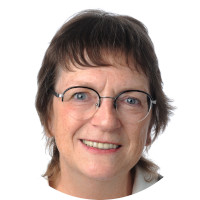 Lena Candries is from Belgium and is an experienced senior director in international business relations and development.
Lena Candries is from Belgium and is an experienced senior director in international business relations and development.
She holds a bachelor of science – business administration with an emphasis on management and marketing and holds a master in international business administration from Saint Louis University in the USA.
She joined the Antwerp Management School in January 2009 and was business director of the full-time and executive part-time master programs. Responsible for synergies between the various programs; internationalisation; student recruitment, career advice and development services, quality and growth of the master programs; and co-managed the international university accreditation AACSB.
She joined the University of Antwerp, faculty of business and economics in September 2016 as director of international relations and development. She is responsible for the international non-degree activities and catalyst in strengthening and integrating the international components of the faculty (partner relations, international mobility, summer schools, exchange, English master programs, internationalisation at home).
Prior to joining management education Lena spent 20 years in the USA as an entrepreneurial and culturally focused marketing / management professional in the field of international strategic marketing. Experience focused on revenue and profit enhancement through development and management of prospect and customer databases, targeted direct marketing, client management, logistics, and design of internal and external communication links. She also has teaching, training & coaching, and consular experience (honorary consul).
How to write an accreditation report (recorded on 4 May 2020) Isabelle Fagnot, Kedge BS, and Geralyn Franklin, University of Louisiana
Watch the recording
Writing an accreditation report requires a high investment at the institution level whether the school is in the initial or reaccreditation cycle. Writing an accreditation report is an opportunity for a school to reflect and write about the school’s strategic development and its on-going quality improvement. It demands a rigorous collaborative process of data collection for supporting information and materials to include in the report and frequent communication with the various members of the school to develop the chapters. Writing an accreditation report a school must think of questions such as:
- What is the story that the school wants to tell in the report?
- What data is required to tell that story?
The process of writing an accreditation report will also enable the school to reflect on its strength and areas of improvement. It is a chance for a school to highlight its main achievements from the past years.
About the speakers
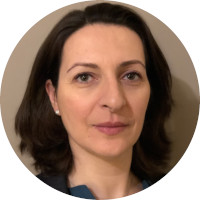 Isabelle Fagnot is Associate Dean Quality & Accreditation and Professor of Management of Information Systems at KEDGE Business School. She received her Ph.D. (2011) from the School of Information Studies at Syracuse University. Her research focuses on behavioral issues of managing Information Systems related to organizational security, quality assurance and the culture of the information profession. Isabelle’s research is regularly disseminated in journal publications, conference presentations and invited lectures. Isabelle has extensive experience in Quality Assurance – she has led initial and maintenance accreditation processes in Triple Crown schools.
Isabelle Fagnot is Associate Dean Quality & Accreditation and Professor of Management of Information Systems at KEDGE Business School. She received her Ph.D. (2011) from the School of Information Studies at Syracuse University. Her research focuses on behavioral issues of managing Information Systems related to organizational security, quality assurance and the culture of the information profession. Isabelle’s research is regularly disseminated in journal publications, conference presentations and invited lectures. Isabelle has extensive experience in Quality Assurance – she has led initial and maintenance accreditation processes in Triple Crown schools.
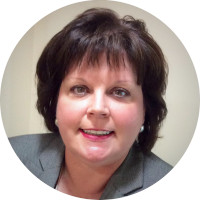 Geralyn McClure Franklin (PhD, University of North Texas) is an innovative and experienced academic leader who served as dean or interim dean of business at four higher education institutions in the United States for 13 1/2 years and then as dean of the College of Business and Economics at the United Arab Emirates University for two years before retiring in June 2016. She personally has led successful AACSB International accreditation efforts, including one initial and two continuous improvement, and assisted with report preparation for several other accrediting bodies. Upon retirement, Dr. Franklin began consulting with universities and business schools globally as well as supporting several start-up ventures through her own start-up, GMF Academic Advisors, LLC. In July 2019, Dr. Franklin joined the University of Louisiana at Lafayette for a one-year appointment as interim dean of the B.I. Moody III College of Business Administration. She is charged with preparing the college for its AACSB continuous improvement review in October 2020.
Geralyn McClure Franklin (PhD, University of North Texas) is an innovative and experienced academic leader who served as dean or interim dean of business at four higher education institutions in the United States for 13 1/2 years and then as dean of the College of Business and Economics at the United Arab Emirates University for two years before retiring in June 2016. She personally has led successful AACSB International accreditation efforts, including one initial and two continuous improvement, and assisted with report preparation for several other accrediting bodies. Upon retirement, Dr. Franklin began consulting with universities and business schools globally as well as supporting several start-up ventures through her own start-up, GMF Academic Advisors, LLC. In July 2019, Dr. Franklin joined the University of Louisiana at Lafayette for a one-year appointment as interim dean of the B.I. Moody III College of Business Administration. She is charged with preparing the college for its AACSB continuous improvement review in October 2020.
How to manage your staff and prepare for an accreditation visit (recorded on 6 May 2020) Kirsteen Daly, Adam Smith Business School
Watch the recording
In this webinar, Kirsteen will provide tips on the support to accreditation professionals in developing the various accreditation processes in preparing for an accreditation visit. Topics covered will include: the use of project plans, scheduling the visit; looking after the peer review team and ensuring the preparation of documentation for the base room is appropriate; the use of comprehensive communication platforms to promote the visit within the School and to wider stakeholders; preparing and managing staff both academic and professional by using mock visit preparations; and overseeing the visit and ensuring a smooth journey for all stakeholders involved.
About the speaker
 Kirsteen Daly is a Higher Education professional with extensive Accreditation, Rankings, Communication and Learning and Teaching knowledge and expertise. Managerial experience in the implementation of strategies and policies to ensure business needs are delivered and enhanced. Responsible for project management of accreditation and ranking processes and improvements. Contributing to the delivery of the strategic aims of an institution in maintaining triple accreditation and supporting the delivery and enhancement of the various rankings.
Kirsteen Daly is a Higher Education professional with extensive Accreditation, Rankings, Communication and Learning and Teaching knowledge and expertise. Managerial experience in the implementation of strategies and policies to ensure business needs are delivered and enhanced. Responsible for project management of accreditation and ranking processes and improvements. Contributing to the delivery of the strategic aims of an institution in maintaining triple accreditation and supporting the delivery and enhancement of the various rankings.
How to involve your Dean (recorded on 11 May 2020) Thomas Cleff, Pforzheim University
Watch the recording
For a successful international accreditation, the role and the commitment of the dean is crucial. Like no other person she/he has to drive and coordinate the process. She/He has to convince faculty and to redesign culture and processes. This is not always without conflict and requires special commitment and engagement, but if accreditation is successful it leads to professional management structures in a business school. This goal alone is worth the effort. In this webinar we will explain and discuss this special role of the dean.
About the speaker
 Thomas Cleff is professor of Quantitative Methods for Business and Economics, Dean of Pforzheim Business School, and Research Associate at the Centre for European Economic Research (ZEW), Mannheim, Germany. He holds degrees in Economics and Management Science from Pantheon-Sorbonne University in Paris (France) and the University of Wuppertal (Germany), and earned his doctoral degree at the University of Wuppertal (Germany). He was a senior researcher at the Centre for European Economic Research (ZEW) in Mannheim from 1997 to 2000. Since joining Pforzheim University, Thomas Cleff has fulfilled various roles: he spearheaded the development of an international double-degree programme, was elected vice dean in 2012 and is dean of the Business School (Faculty of Business & Law) since 2014. He is an expert in international accreditation and partnership programmes between institutions of higher education. In 2013 he became a board member of the Network of International Business and Economic Schools (NIBES) and has been its Secretary General since 2019. Between 2016 and 2019 he served on the AACSB Initial Accreditation Committee (IAC-z) and on the Board of the AACSB European Affinity Group. As a member of various AACSB Peer Review Teams, he is and has been involved in the (re-)accreditation of many universities worldwide. Since 2014 he is a member of the International Advisory Board of the Education Quality Accreditation Agency (EQUAA), a South American association. In 2019 he was named a member of the International Academic Council of the School of Management at the National Taiwan University of Science and Technology. On several occasions he has served as a visiting professor at universities outside of Germany. His main research interests are international marketing research, white-collar crime, brand research, innovation research and industry studies. Part of his research is carried out at ZEW, where he is a research associate.
Thomas Cleff is professor of Quantitative Methods for Business and Economics, Dean of Pforzheim Business School, and Research Associate at the Centre for European Economic Research (ZEW), Mannheim, Germany. He holds degrees in Economics and Management Science from Pantheon-Sorbonne University in Paris (France) and the University of Wuppertal (Germany), and earned his doctoral degree at the University of Wuppertal (Germany). He was a senior researcher at the Centre for European Economic Research (ZEW) in Mannheim from 1997 to 2000. Since joining Pforzheim University, Thomas Cleff has fulfilled various roles: he spearheaded the development of an international double-degree programme, was elected vice dean in 2012 and is dean of the Business School (Faculty of Business & Law) since 2014. He is an expert in international accreditation and partnership programmes between institutions of higher education. In 2013 he became a board member of the Network of International Business and Economic Schools (NIBES) and has been its Secretary General since 2019. Between 2016 and 2019 he served on the AACSB Initial Accreditation Committee (IAC-z) and on the Board of the AACSB European Affinity Group. As a member of various AACSB Peer Review Teams, he is and has been involved in the (re-)accreditation of many universities worldwide. Since 2014 he is a member of the International Advisory Board of the Education Quality Accreditation Agency (EQUAA), a South American association. In 2019 he was named a member of the International Academic Council of the School of Management at the National Taiwan University of Science and Technology. On several occasions he has served as a visiting professor at universities outside of Germany. His main research interests are international marketing research, white-collar crime, brand research, innovation research and industry studies. Part of his research is carried out at ZEW, where he is a research associate.
How to value accreditation? (recorded on 13 May 2020) Manuela Brusoni, SDA Bocconi School of Management, Christina Green, TUM School of Management and Claire Thouary, QACE UP
Watch the recording
For many institutions, accreditations prove to be a real burden associated with bureaucratic, time-consuming tasks and a very costly investment. As for any strategic project, costs are part of the deal. Direct costs (budget) and indirect ones (time) are inevitable to make it a success. However, it would be underestimating the leverage of accreditations to think that obtaining them consists only in investing a lot of money for a short-term reward.
Accreditations rhyme with “value creation”. Indeed, they act as quality instruments and offer a balanced assessment of the institution’s strengths and improvement opportunities. Value is created within the institution itself but also through its international outreach. Once the accreditations are granted, it then becomes fundamental to implement strategies for long-term improvement rather than only targeting short-term goals.
This webinar mainly aims at showing how the benefits outweigh the necessary costs induced by the accreditation process. For that reason, we will not only focus on legitimacy benefits but also on performance ones. Embracing quality as a habit and increasing performance at the same time guarantee a sustainable development.
About the speakers
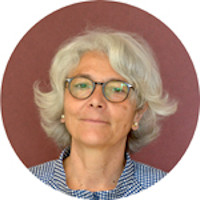 Manuela Brusoni is Associate Professor of Practice of Government, Health and Not for Profit at SDA Bocconi School of Management. In this role she launched and was Director of various Executive Education Programs in the field of Public Procurement and Business Government Relations.
Manuela Brusoni is Associate Professor of Practice of Government, Health and Not for Profit at SDA Bocconi School of Management. In this role she launched and was Director of various Executive Education Programs in the field of Public Procurement and Business Government Relations.
At SDA Bocconi, she is Director of Quality Accreditation and Benchmarking. She was project leader for the first SDA Bocconi EQUIS accreditation (1998), among the first pilot group of Schools of Management, and now leads all the international and national accreditation processes, including EQUIS, AACSB, AMBA, ASFOR and manages other certifications and memberships of the School.
At Bocconi University she is member of the Quality Assurance Unit. She is Chair of the Accreditation Commission of ASFOR, the Italian Association for Management Education and Member of the Board, member of the Academic Board of ABIS (the Academy of Business in Society) and system evaluator for ANVUR, the Italian National Agency for the Evaluation of Universities and Research Institutes.
In her contribution to society, she was President of the Central Procurement Society of Lombardy Region (2014-2019). In her contribution to the management education community, she has been Chair Elected of various Committees of the Academy of Management (such as Chair Elected of the Management Education Division, Chair Elected of the Best Article Committee of the Public Non Profit Division, Best Reviewer Award Health Care Management Division and MED).
Currently, she has deepened numerous topics linked with her previous research, including public administration role and responsibilities for innovation and sustainability and institutional models and competencies development for public procurement, and is the author of numerous books and articles on her field of research, teaching and consulting.
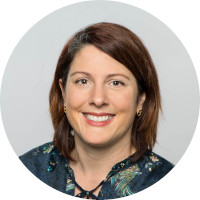
Christina Green, Division Director for Quality Management, TUM School of Management, Germany Christina Green has been Director for Quality Management at TUM School of Management since 2012 with the responsibility of managing the AACSB, AMBA and EQUIS accreditations. Before this, she held various academic and administrative positions at German and US business schools. She has a degree in management from the University of Applied Science in Ingolstadt, Germany, an MBA from the University of Missouri in Kansas City, USA, and a doctoral degree from the Catholic University of Ingolstadt, Germany. Christina Green received awards for her academic and professional work, e.g. best dissertation or an award for her contribution to receiving the accreditations at TUM School of Management.
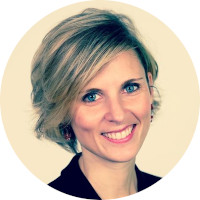 Claire Thouary founded QACE UP in June 2017 with more than 10 years of experience in quality management (10 years in Higher Education and a couple of years in the Medical Industry). QACE UP came up with a strong will to assist business schools and universities in their quest for excellence in a constant evolving landscape.
Claire Thouary founded QACE UP in June 2017 with more than 10 years of experience in quality management (10 years in Higher Education and a couple of years in the Medical Industry). QACE UP came up with a strong will to assist business schools and universities in their quest for excellence in a constant evolving landscape.
Claire Thouary worked as Quality and Accreditations Director at emlyon business school to manage both national and international accreditations. She also managed a team within the executive education offer (customized programmes). Her expertise was also appreciated within the Faculty management team in the recruitment processes and data analysis.
She graduated from the University Lyon III with a Master’s degree and is currently attending an MSc in Entrepreneurship and Innovation at HEC Paris.
Regional focus: Americas (Recorded on 25 June 2020) Carolina Velásquez Mora (Universidad de La Sabana) Heloisa Monaco (FGV EAESP) Rogerio Paes Costa (Insper) Jennifer Percival (University of Massachusetts Lowell) Jane Mulatz (Saint Mary’s University)
Watch the recording
About the speakers
 Carolina Velásquez-Mora is the Program Director of the Bachelor of International Business at Universidad de La Sabana, Colombia. She holds an MBA from INALDE Business School, Colombia and a master’s degree on Commerce in Business from Macquarie University, Australia. Miss Velásquez has been working at Universidad de La Sabana since 2014, first as Head of Internationalization of the International School of Economic and Administrative Sciences and then as Program Director, and has professional experience in negotiation, sales, project management and corporate relations in retail companies.
Carolina Velásquez-Mora is the Program Director of the Bachelor of International Business at Universidad de La Sabana, Colombia. She holds an MBA from INALDE Business School, Colombia and a master’s degree on Commerce in Business from Macquarie University, Australia. Miss Velásquez has been working at Universidad de La Sabana since 2014, first as Head of Internationalization of the International School of Economic and Administrative Sciences and then as Program Director, and has professional experience in negotiation, sales, project management and corporate relations in retail companies.
 Heloisa Monaco has been a Manager of Accreditations, Rankings, and Institutional Information at Fundacao-Getulio-Vargas’s Sao Paulo School of Business Administration (FGV EAESP) since 2012. She received her PhD in Business Administration from FGV EAESP in 2010; and she has a bachelor’s degree in Computer Science from Universidade de Sao Paulo (USP). Previously, she worked as an information management consultant for leading organizations in both the private and public sectors in Brazil.
Heloisa Monaco has been a Manager of Accreditations, Rankings, and Institutional Information at Fundacao-Getulio-Vargas’s Sao Paulo School of Business Administration (FGV EAESP) since 2012. She received her PhD in Business Administration from FGV EAESP in 2010; and she has a bachelor’s degree in Computer Science from Universidade de Sao Paulo (USP). Previously, she worked as an information management consultant for leading organizations in both the private and public sectors in Brazil.
 Rogerio Paes Costa has been working in higher education for more than 20 years and is currently Head of Institutional Evaluation and Accreditation at Insper Instituto de Ensino e Pesquisa, being responsible for the regulatory processes and the communication with the Ministry of Education (MEC), the international accreditation projects (AACSB, EQUIS, AMBA and ABET) and the Registrar’s Office. He has a BA in Computer Science, a major in Portuguese/English Teaching, specialization degrees in Translation and TEFL and is expected to earn his Executive MBA from Insper in 2020.
Rogerio Paes Costa has been working in higher education for more than 20 years and is currently Head of Institutional Evaluation and Accreditation at Insper Instituto de Ensino e Pesquisa, being responsible for the regulatory processes and the communication with the Ministry of Education (MEC), the international accreditation projects (AACSB, EQUIS, AMBA and ABET) and the Registrar’s Office. He has a BA in Computer Science, a major in Portuguese/English Teaching, specialization degrees in Translation and TEFL and is expected to earn his Executive MBA from Insper in 2020.
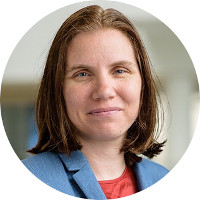 Dr. Jennifer Percival is currently the Associate Dean in the Manning School of Business at the University of Massachusetts Lowell (UML). Before joining UML in 2017, Jennifer served as the Associate Dean in the Faculty of Business and Information Technology at the University of Ontario Institute of Technology (now known as Ontario Tech University) in Canada. Her career has been informed by her unique experiences of joining a newly founded university and shaping its curriculum and culture throughout the first 13 years of her career. Jennifer received her Bachelor of Mathematics in Operations Research and her PhD in Management Sciences from the University of Waterloo. Her current interdisciplinary research interests examine impact and integration of new technologies and processes innovations in the services sector with a focus on applying these techniques in higher education and healthcare. She is a member of IAENG, IISE, SHS, and INFORMS.
Dr. Jennifer Percival is currently the Associate Dean in the Manning School of Business at the University of Massachusetts Lowell (UML). Before joining UML in 2017, Jennifer served as the Associate Dean in the Faculty of Business and Information Technology at the University of Ontario Institute of Technology (now known as Ontario Tech University) in Canada. Her career has been informed by her unique experiences of joining a newly founded university and shaping its curriculum and culture throughout the first 13 years of her career. Jennifer received her Bachelor of Mathematics in Operations Research and her PhD in Management Sciences from the University of Waterloo. Her current interdisciplinary research interests examine impact and integration of new technologies and processes innovations in the services sector with a focus on applying these techniques in higher education and healthcare. She is a member of IAENG, IISE, SHS, and INFORMS.
 Jane Mulatz, MPA, is the director of Strategy & Accreditations at Sobey School of Business. Over nearly 20 years of progressive experience in higher education, Jane has coordinated and facilitated multi-stakeholder consultation processes for various initiatives including accreditation, governance processes, strategic planning and program development. She has developed and implemented policy, impact, evaluation and program frameworks and led change processes including those that impacted governance, staffing and programming. Jane (as Director of Strategy & Accreditation) is responsible for maintaining AACSB accreditation and seeking EQUIS accreditation for the Sobey School of Business at Saint Mary’s University in Halifax, Canada. In 2016, Jane shepherded the Sobey School through the Business School Impact System (BSIS) process and has served as project lead on the Sobey School’s PRME commitment since 2014.
Jane Mulatz, MPA, is the director of Strategy & Accreditations at Sobey School of Business. Over nearly 20 years of progressive experience in higher education, Jane has coordinated and facilitated multi-stakeholder consultation processes for various initiatives including accreditation, governance processes, strategic planning and program development. She has developed and implemented policy, impact, evaluation and program frameworks and led change processes including those that impacted governance, staffing and programming. Jane (as Director of Strategy & Accreditation) is responsible for maintaining AACSB accreditation and seeking EQUIS accreditation for the Sobey School of Business at Saint Mary’s University in Halifax, Canada. In 2016, Jane shepherded the Sobey School through the Business School Impact System (BSIS) process and has served as project lead on the Sobey School’s PRME commitment since 2014.
Regional focus: Asia-Pacific (Recorded on 30 June 2020) Simon Potts (University of Southern Australia) Helen Matich (Monash University) Gillian Yeo (Nanyang Technological University) Piet Naudé (EFMD GN)
Watch the recording
About the speakers
 Simon Potts is the Accreditation and Quality Assurance Manager at the University of South Australia (UniSA) and current Chair of the Australia and New Zealand Quality and Accreditation Network (ANZQAN) executive team. For the past three years, Simon has led the initial AACSB accreditation and EFMD (EQUIS) reaccreditation for UniSA Business. Prior to this, Simon worked in strategic planning, quality improvement and risk management in universities and professional bodies across Australia and in the UK.
Simon Potts is the Accreditation and Quality Assurance Manager at the University of South Australia (UniSA) and current Chair of the Australia and New Zealand Quality and Accreditation Network (ANZQAN) executive team. For the past three years, Simon has led the initial AACSB accreditation and EFMD (EQUIS) reaccreditation for UniSA Business. Prior to this, Simon worked in strategic planning, quality improvement and risk management in universities and professional bodies across Australia and in the UK.
 Helen Matich is the Senior Manager of Performance and Quality Services at Monash Business School in Melbourne, Australia. In this role since 2016, Helen leads a team that integrates the functions of accreditation management, data analytics, academic governance and strategic planning to support quality assurance across the business school. What inspires Helen most about accreditation is the opportunity to tell the story of a dynamic community of researchers and educators and the school’s role in shaping change for good.
Helen Matich is the Senior Manager of Performance and Quality Services at Monash Business School in Melbourne, Australia. In this role since 2016, Helen leads a team that integrates the functions of accreditation management, data analytics, academic governance and strategic planning to support quality assurance across the business school. What inspires Helen most about accreditation is the opportunity to tell the story of a dynamic community of researchers and educators and the school’s role in shaping change for good.
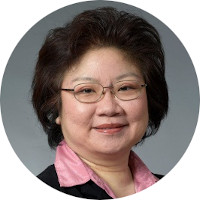 Gillian Yeo is Professor of Accountancy and Associate Dean (Faculty) at Nanyang Business School (NBS), Nanyang Technological University (NTU). She was formerly the Interim Dean of NBS.
Gillian Yeo is Professor of Accountancy and Associate Dean (Faculty) at Nanyang Business School (NBS), Nanyang Technological University (NTU). She was formerly the Interim Dean of NBS.
Prior to joining NTU, Gillian held senior accounting and finance positions in multinational corporations (PriceWaterhouse and Texas Instruments). She obtained her doctorate degree in Accounting and Finance from the University of Illinois at Urbana-Champaign. She was also a recipient of the Public Administration Medal (Silver) at the National Day Awards 2012 in Singapore.
Gillian’s teaching interests are in Financial Statement Analysis and Accounting Recognition & Measurement. Her research has been published in leading scholarly journals and her publications are in the areas of accounting disclosures and capital market valuations, executive compensation, firm performance and valuation, corporate governance and corporate finance issues.
Gillian is a Fellow of CPA (Australia) and the Institute of Singapore Chartered Accountants (ISCA). She served as a board member of the Accounting and Corporate Regulatory Authority of Singapore and was a member of the Public Accountants Oversight committee. She served as a board member of the Singapore Accountancy Commission, chaired the Research Advisory Group and was on the Advisory Council of the Singapore Chartered Accountancy professional qualification. She served as a Council member of ISCA and chaired the Board of Education and Examinations Committee.
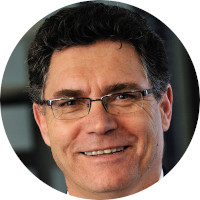 Piet Naudé is professor of Ethics and Director of the Stellenbosch Business School, South Africa and recently joined the EFMD as Director of the EDAF programme. He is a well-known academic, public speaker and column writer. Before his appointment at the USB, he was deputy vice-chancellor responsible for teaching and learning at the Nelson Mandela Metropolitan University (NMMU) in Port Elizabeth. He has more than twenty years of management experience at a university.
Piet Naudé is professor of Ethics and Director of the Stellenbosch Business School, South Africa and recently joined the EFMD as Director of the EDAF programme. He is a well-known academic, public speaker and column writer. Before his appointment at the USB, he was deputy vice-chancellor responsible for teaching and learning at the Nelson Mandela Metropolitan University (NMMU) in Port Elizabeth. He has more than twenty years of management experience at a university.
He is a highly rated researcher and has published more than 100 articles in academic journals and has presented at almost 150 national and international conferences and academic occasions on topics related to public ethics and forms of social justice. He is a member of a number of academic societies.




